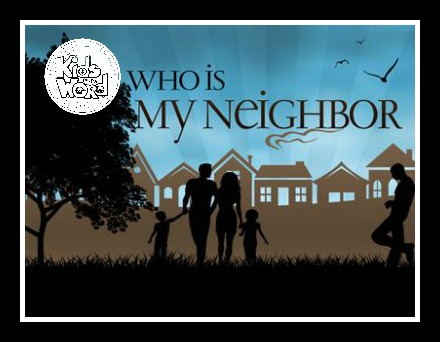Turning on the news lately has been depressing to say the least. Fighting (both domestically and internationally), hateful words being spoken, riots–it seems never-ending. I keep coming back to the words “Love the Lord your God with all your heart and with all your soul, and with all your strength and with all your mind, and your neighbor as yourself.” I can't help but think that if everyone was doing this, much of the anger and strife going on in the world would go away.
As I have been talking about this with my kids, and the kids I work with, we have been drawn to talking about the Good Samaritan. The lawyer who is talking to Jesus follows up the statement about loving God and your neighbor with an intriguing question – in Luke 10:29: “But wanting to justify himself, he asked Jesus, ‘And who is my neighbor?'” Jesus responds with the story of the Good Samaritan.
In the story of the Good Samaritan we see a priest and a Levite pass by the man on the road to Jericho who had been beaten and left for dead. Eventually a Samaritan man sees him and shows pity on him. He bandages his wounds, brings him to an inn and takes care of him. He is the one who is a neighbor to him. What is especially astonishing in this story is that we believe the man on the road to Jericho was a Jew, and Jews and Samaritans did not get along–so it is especially surprising that a Samaritan would have shown mercy to a Jewish man.
We have spent a lot of time at our house, and in our classes talking about who the “Samaritans” are in our lives, and how we might be a neighbor to them. We have talked about how we can be a neighbor to all people, especially those who might be difficult to love. I believe with all my heart that we could change the world if we would all practice this effectively.
As I have been meditating on this story lately, I keep wondering if the story would have turned out a little differently if one detail had been changed. We know that the man on the road was beaten and left for dead, so we can assume he was probably unconscious. I keep wondering if he was hurt, but not quite so badly, would he have allowed the Samaritan man to help him?
Sometimes I think that is the harder challenge. I know it is for me. I wish maybe there was an addendum to that commandment that said “Love your neighbor as yourself, and sometimes, loving yourself means letting others be your neighbor.”
God designed us to be in relationships. In relationship with God, and in relationship with others. Sometimes we are able to give, and give abundantly in a relationship or a community. But sometimes we need some extra help, and we need to ask for that help so that others can be a neighbor to us.
After seeing two suicides in our community recently, I realized I better figure this out. I need to be a better example to my kids or they will grow up with the same feelings of shame and embarrassment that I have when asking for any kind of help. I want to be a neighbor, I don't want to need a neighbor.
Here are some questions and ideas to help your family focus on what it means to be a true neighbor:
- How can you be a neighbor to someone who needs one?
- Do you have a difficult time asking for help? Take a pledge with a good friend that you will call them when you need help – and they can help you figure out what you need.
- Talk to your kids about who their neighbor is and how they can be a good neighbor to everyone they meet. Come up with one concrete thing you can do this week to be a good neighbor to someone who might need some extra help or care.
- Have your children identify 3 adults or “neighbors” (other than their parents) that they could go to to ask for help if they were going through a difficult time or a tough situation. This could be a teacher, someone at church, or a friend or family member.
.png)

